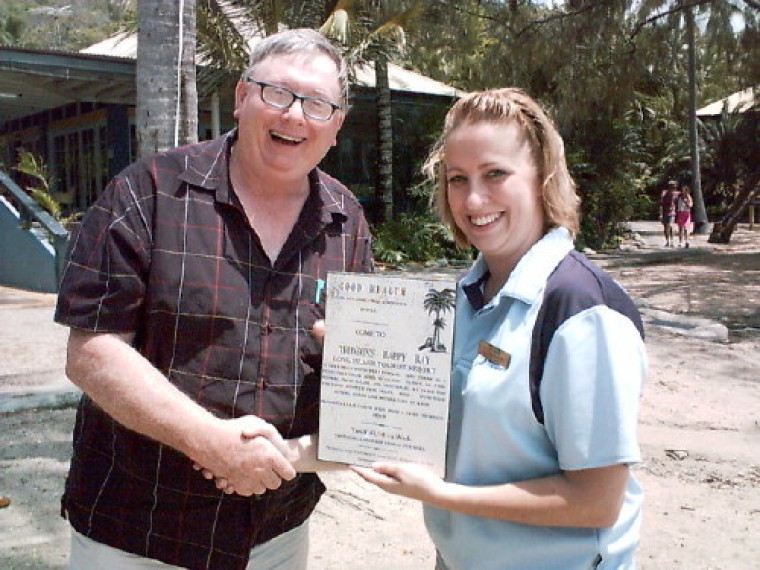
Although the Nobel Prize can never be made posthumously, there are many other awards that can be, when someone has earned the 'gong' but dies before it can be awarded.
Mark Tronson, Chairman of Well-Being Australia, would like to pay homage to the late Denise Smith, a remarkable woman. She was an inspiration in the way she gave of her expertise to those less fortunate, and was enthusiastic about being involved in new ideas in the ministry of M V Tronson and his wife, Delma.
She lectured at the University of Newcastle (NSW) in Special Education, and her 'leisure' life revolved around sports. She managed to combine both these passions by teaching swimming to those with various disabilities. She was also a committed Christian and was interested in combining academic theology with practical ministry.
Denise Smith first visited Mark and Delma Tronson's sports respite facility in the summer of 1991, when they lived at Moruya on the New South Wales. She came to attend a week-long Sports Ministry school, which was 'just the ticket' to combine her many and varied community and professional interests.
"Our whole family grew to love Denise, who became a wonderfully positive influence in every new adventure of faith associated with our ministry," remembered Mark Tronson. "She was amazingly competent to become a supervisor for some of our more academic theological projects."
When the Tronson family visited Denise Smith and her adult children in her Newcastle home during one family holiday, they were informed that Denise had an aggressive form of cancer and her time was limited.
"Although she only lived for another twelve months, in that time we enjoyed and benefited from her wisdom and input, remembered M V Tronson. "Heaven became greatly enhanced when she passed on."
It was only a short time after Denise Smith's death that M V Tronson received a letter from the Governor General's Australian Awards requesting his comments as to a posthumous OAM (Order of Australia Medal) for Denise Smith, highlighting her contribution to swimming and her community work.
Although, at first, this seemed like it may have been an empty 'gong' to her family and true friends who realised this should have been awarded well before her death, M V Tronson realises that the process of nomination and checking of references for these awards takes many months, and he hopes fervently that Denise Smith knew, months before her death, that her community was nominating her for this award.
That is the only thing that gives him a modicum of cheer.
These Australian Community Awards are just that: they go to ordinary people who do the most extraordinary things without song or dance. It is usually 'assumed' that the person himself or herself can privately enjoy the knowledge of the community's love and support.
However, life is ephemeral, and in the unfortunate circumstance where death comes prematurely, or the community did not 'think' to make a nomination earlier in the esteemed person's life, then a 'posthumous' award is at least of some comfort to the family and friends.
Mark Tronson is sad that Denise did not live to see her award (or maybe she did know about it); but he is grateful that in this case, a wonderful person such as Denise Smith can be honoured even if it must be 'posthumously'.